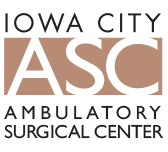After your ophthalmologist has performed tests to confirm that you have cataracts, fear may set in. Being told that you have cataracts and that eventually you will need eye surgery to save your eyesight can be very scary news. It’s only natural to be afraid that there may a strong possibility you will go blind if you do not have the surgery. Then of course, there is the worry you might then have about having surgery on your eyes.
If your cataracts are in their early stages, it is likely that your ophthalmologist will recommend waiting for surgery. He or she will recommend lifestyle changes you can make that will help manage your cataracts until the time comes to have them removed.
Prevention is Key
Cataracts are for the most part a natural part of the body’s aging process. While you might not be able to prevent them from occurring or slow their progression, there are steps you can take to make them more manageable:
- Have a regular eye examination every year if you are over 65 or every other year if you are younger. This helps detect cataracts and other problems with your eyes at an early stage. Early detection is important to protecting your eyesight.
- If you smoke, quit as soon as possible. Tobacco smoke has shown to speed up the progression of cataracts. Smoking also increases your risk of developing cataracts.
- Cut down on alcohol if you drink excessively. Alcohol use can increase your cataract risk
- Address other health problems that you might have. Diabetes increases your risk of eye problems.
- Do not fall for scams for treatments or eye drops that claim to dissolve cataracts. The only way to get rid of cataracts is to have surgery to remove them.
- Includes lots of fruits and vegetables in your diet. Eating a variety of colorful vegetable and fruits helps ensure that you are getting vitamins and nutrients, especially antioxidants that help keep your eyes healthy.
Lifestyle Changes
Your ophthalmologist may recommend that you make lifestyle changes, such as:
- Wear sunglasses when you are outdoors. The ultraviolet rays from the sun may cause cataracts to develop.
- Make sure that you have the most accurate prescription for your contact lenses or eyeglasses. This will help correct the blurriness you might experience with your cataracts.
- Limit your driving at night. Cataracts can make it difficult to drive at night. You may see halos around lights and bothersome glares.
- Add additional lighting to your home. Cataracts can make it more difficult for you to see in low-light.
Speak to your ophthalmologist and ask questions about when you should decide to proceed with cataract surgery. This surgery is very common and is regularly done on an outpatient basis at the Iowa City Ambulatory Surgical Center.






